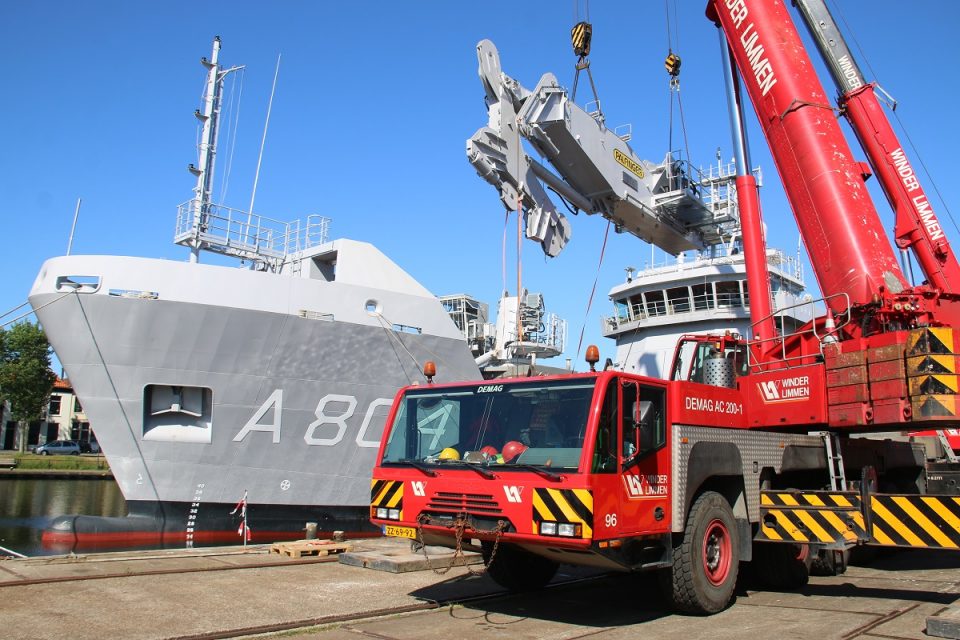HNLMS Pelikaan is back in the familiar waters of the Caribbean. Damen Shipyards Den Helder has returned the HNLMS Pelikaan to the Royal Netherlands Navy (RNLN) following a mid-life upgrade lasting 8 months. The most important upgrade was the installation of a considerably heavier crane.
Following the work completed on 17 September, the vessel, which Damen delivered to the RNLN in 2006, is ready for a further 15 years’ service. The Pelikaan resumed work in the Caribbean on 1 October.
At the end of November 2019, the Caribbean support vessel returned to the Dutch coast for the first time since it was put into service in 2006. After operating for 13 years in the Caribbean Sea in support of maritime operations and in the delivery of humanitarian relief, it was time for major maintenance works. This took place at the Damen yards in Den Helder and Harlingen.
Heavier crane
Works carried out included installing new nautical, communication and automation systems, galley upgrade and regular maintenance such as maintenance of the two main engines. Furthermore, the scope of work involved the renewal of all onboard accommodation, including making the vessel more suitable for female passengers. The most important upgrade was the installation of a considerably heavier crane, the main weapon system of HNLMS Pelikaan.
This crane is crucial for, among other things, being able to independently carry out emergency relief operations in the Caribbean. The crane is not only considerably heavier, more modern and more user-friendly than its predecessor, it also facilitates the use of a new fast raiding interceptor and special forces craft (FRISC). This fast and manoeuvrable craft enables HNLMS Pelikaan to act more effectively in the fight against drug smuggling.
Dutch naval cluster
‘The project was not without its challenges – including of course the outbreak of the coronavirus,’ says Project leader Jan-Dirk Boomsma. ‘However, with robust safety measures in place, we were able to continue the work. Thanks to the excellent cooperation with the Defence Materiel Organisation (DMO), the Naval Maintenance and Sustainment Agency (DMI) and the crew, we delivered the project to everyone’s satisfaction in a relatively short period of time.’
The midlife upgrade was successfully realised, partly in close collaboration with the Dutch naval shipbuilding cluster. Alewijnse, Heinen & Hopman, Alfa Laval, Hatenboer Water, Rohde & Schwarz are a small selection of the Dutch subcontractors who have taken part in this project.









